“Hume on Eloquence and the Failings of English Political Oratory” in Max Skjönsberg and Felix Waldmann eds. Hume’s Essays: A Critical Guide (Cambridge University Press, 2025).
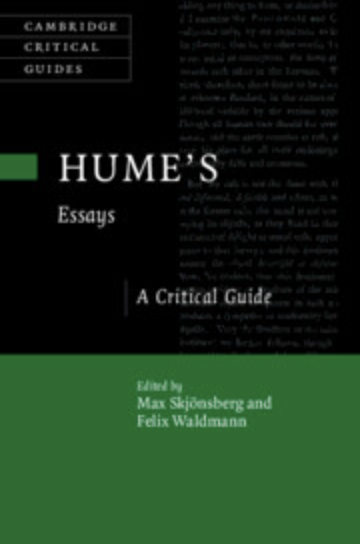
Hume’s ‘Of Eloquence’ – in which Hume implores English orators to imitate the sublime style of Demosthenes – has long puzzled readers, for two reasons. First, it is rare for Hume to present ancient examples as suitable for moderns to imitate, particularly where politics is concerned. Second, in the essay’s conclusion, Hume seems to backtrack by encouraging English speakers to give up on sublimity and introduce more order and method into their speeches instead, inviting the accusation of incoherence. In this chapter, I show how reading Hume’s essay through the lens of ancients and moderns is limiting and that a comparison between the political cultures of England and France was central to his analysis. For Hume, the lack of sublimity in Parliament was a specifically English problem with roots in the English national character. If the revival of classical eloquence that Hume desired looked unlikely to him, I argue, this was due less to the unsuitability of sublime speech to a modern society than to the peculiar place of Parliament in Britain’s mixed constitutional order. I also demonstrate that Hume’s closing call for more order and method in English speechmaking was consistent with his earlier endorsement of the sublime.
“The Hidden Labors of Mary Mottley, Madame de Tocqueville,” Hypatia: A Journal of Feminist Philosophy 33, no. 4 (2018). Republished in revised form in Jennifer Forestal and Menaka Philips eds. The Wives of Western Philosophy: Gender Politics in Intellectual Labor (Routledge, 2021).
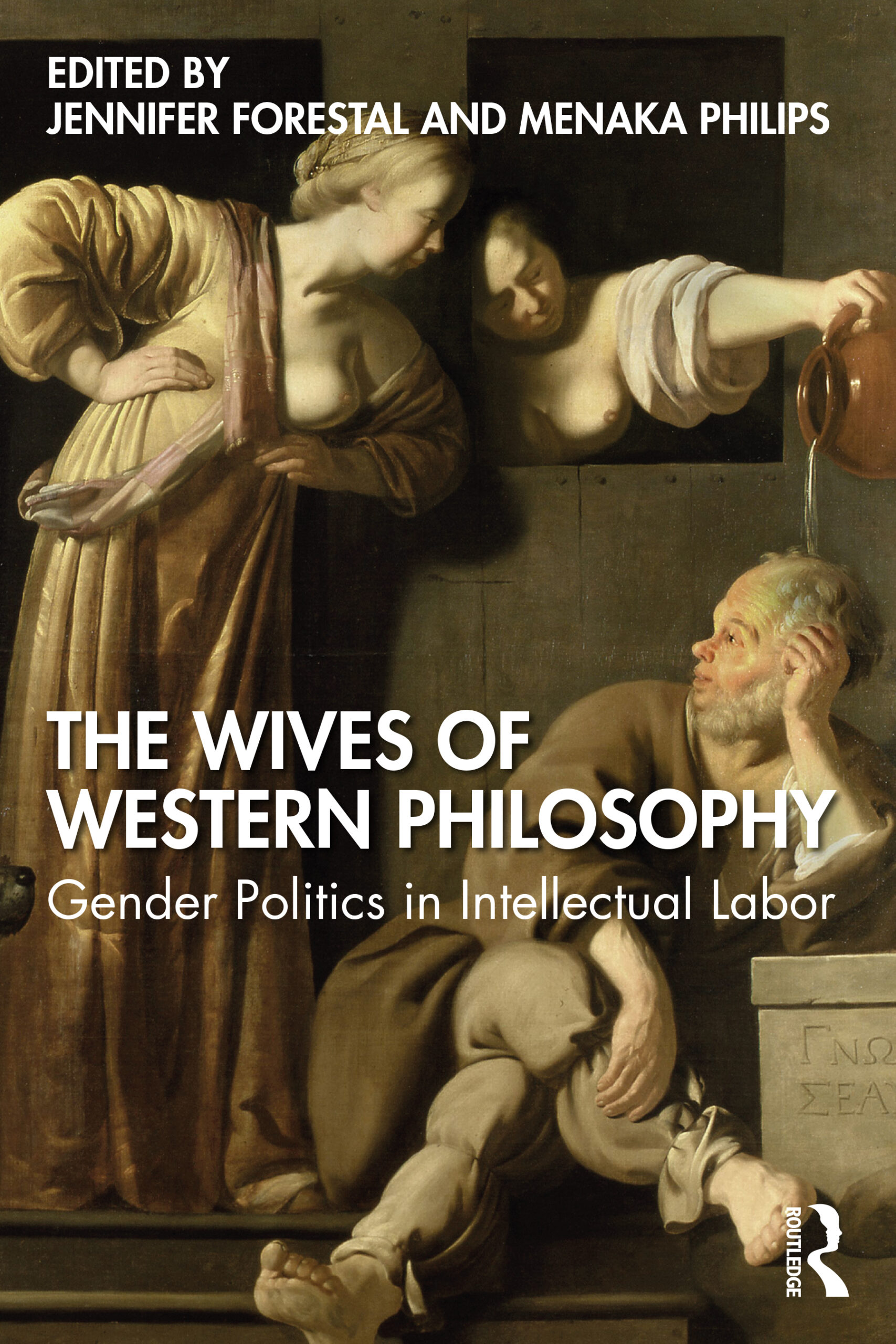
In Democracy in America, Tocqueville described the ideal wife of a democratic citizen as a capable domestic helpmeet who enables the citizen‐husband to endure the daily trials of political activity. Tocqueville’s biographers have presented Tocqueville’s own wife Mary Mottley as having approximated this ideal. Mottley’s importance, it is claimed, lay in providing the domestic calm and psychological support that Tocqueville needed to think, act, and write as he did. My aim in this article is to challenge this interpretation by offering an overdue reassessment of Mottley’s life and work, uncovering the hidden labors she performed in Tocqueville’s circle and giving scope, where possible, to her own political views and activities. Mottley, I argue, refused to confine herself to the domestic‐management and emotional‐support roles typical of a Tocquevillian citizen‐wife. Instead, she carved out a role for herself (albeit limited) as Tocqueville’s political and intellectual interlocutor.
“How Contempt Became a Passion,” History of European Ideas 45, no. 3 (2019)
Philosophers and psychologists have come to recognize contempt as a crucial concept for understanding moral and social life. Yet its conceptual history remains understudied. I argue that contempt underwent an important conceptual shift at the end of the 1640s with the publication of René Descartes’ Passions de l’âme. Prior to Descartes, early modern philosophers excluded contempt from their taxonomies of the passions, treating it instead as a form of indifference. To have contempt for something (death, illness, wealth) was to be free of passion in the face of it. Following Descartes’ intervention, however, philosophers increasingly included contempt among the passions, those unruly perturbations of the mind that could have benign or dangerous effects depending on how they were moderated. This was a change that harboured practical as well as philosophical implications. For what had once been an emblem of self-mastery was now itself a passion in need of regulation. The contempt displayed by aristocrats, in particular, now signified a dangerous lack of self-control rather than a cool display of superiority. I conclude by drawing out the affinities between this mid-seventeenth-century reconceptualization of contempt as a passion and the current attempt by philosophers to redeem contempt as a morally justifiable attitude.
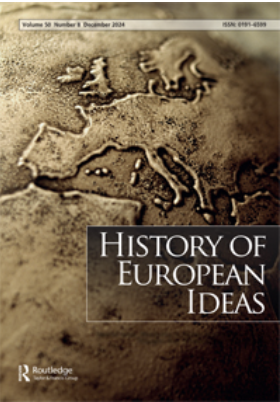
“Wollstonecraft and the Political Value of Contempt” European Journal of Political Theory 18, no. 1 (2019): 26-46
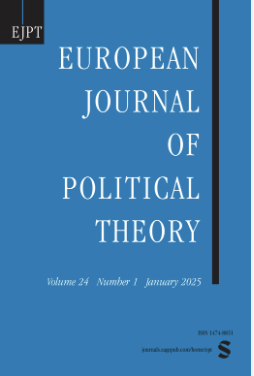
In her Vindication of the Rights of Men, Mary Wollstonecraft accused Edmund Burke of having contempt for his political opponents. Yet she herself expressed contempt for Burke and did so unapologetically. Readers have long regarded Wollstonecraft’s decision to match Burke’s contempt with one of her own as either a tactical blunder or evidence that she sought merely to ridicule Burke rather than argue with him. I offer an interpretation and defence of Wollstonecraft’s rhetorical choices by situating the Vindication within eighteenth-century debates about the dangers of elite contempt and the best methods for stifling it. Rather than countering Burke’s contempt with more of the same, Wollstonecraft’s Vindication marks a distinction between two forms of contempt. The first expresses the false sense of superiority experienced by elites who owe their social elevation to arbitrary differences of wealth or family. As such, it represents both an abuse of privilege and an anxious recognition among elites that their claims to dignity may be unfounded. By contrast, the contempt Wollstonecraft directs at Burke represents a dignified withdrawal of esteem which signals that one’s opponent is unworthy of the dignity to which they lay claim. If Wollstonecraft appeared to treat Burke abusively it was because she came to consider this second form of contempt as an antidote to the abusive contempt of the privileged. I conclude by spelling out some implications of Wollstonecraft’s analysis of contempt for recent debates in political theory over the importance of dignity to democracy.
“Epistolary and Historical Writings” in Sandrine Bergès, Eileen Hunt-Botting, and Alan Coffee eds. The Wollstonecraftian Mind (Routledge, 2019): 145-158.
Having celebrated her as a champion of the rights of women, readers of Mary Wollstonecraft have increasingly sought to recover her as an analyst and critic of commercial modernity. So far this scholarship has sought to establish affinities between Wollstonecraft’s writings and the republican argument that commerce debases character, corrupts virtue, and fosters relations of dependence. But Wollstonecraft’s attitude towards commerce was not straightforwardly adversarial and cannot easily be assimilated to this tradition. Nor, crucially, did she offer an exclusively moral critique of the effects of commerce. Particularly in her historical analysis of the French Revolution, Wollstonecraft moved beyond moralistic broadsides against commerce to develop a stadial account of economic and political development that treated the effects of commerce as fundamentally ambiguous. On the one hand, Wollstonecraft adopted the Rousseauian line that the transition from agricultural to commercial society emptied the countryside and swelled cities like Paris into centers of luxury, urban poverty, and mob violence. But she departed from the standard republican line by insisting that commerce also allowed Paris to emerge as a center of science, political enlightenment, and the rule of law, and so served as a focal point for opposition to absolutism. The resources for correcting the vices of commercialized urban life, in other words, were immanent to the commercial city itself. Ultimately, however, the role played by the commercial city in facilitating positive political change was strictly provisional. Because the concentration of power in an urban “aristocracy of wealth” was fundamentally incompatible with republican government, cities like Paris must, Wollstonecraft held, have their influence severely curtailed. An important implication of this analysis, I suggest in closing, is that an unequivocal moral condemnation of the corrupting effects of commerce can and should be analytically separated from a theorization of commercial society in all its ambiguity.

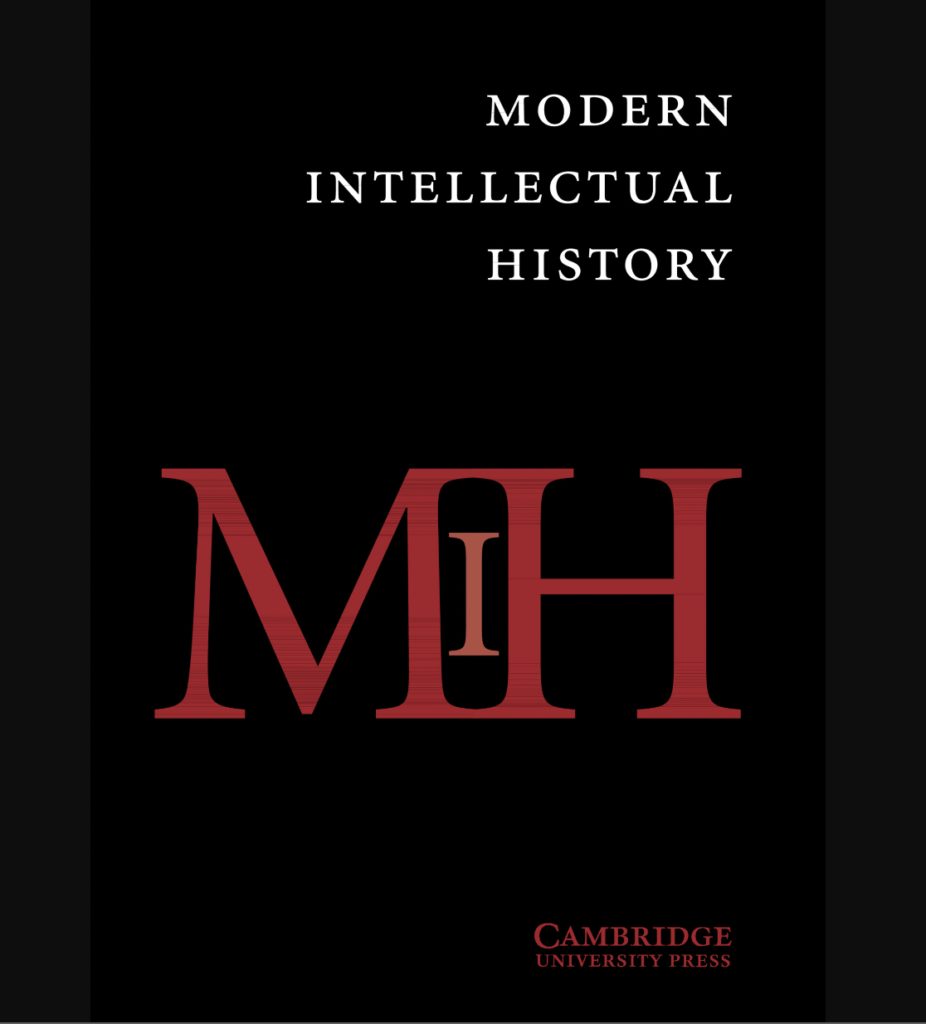
“Ridicule, Censorship, and the Regulation of Public Speech: The Case of Shaftesbury,” Modern Intellectual History 15, no. 2 (2018): 353-380
The Third Earl of Shaftesbury has been celebrated for his commitment to free public discourse regulated only by standards of politeness, a commitment exemplified by his defence of the freedom to ridicule. This article complicates this picture by tracing Shaftesbury’s response to the early eighteenth-century crisis of public speech precipitated by the demise of pre-publication censorship and growing uncertainty about intellectual property in the print trade. Shaftesbury, the article shows, was a determined opponent of pre-publication censorship through licensing, but he was also aware of the dangers posed to religious liberty by, in particular, clerical attacks on toleration, and sought ways to curb them that included corrective action by the state. When the Whigs opted to impeach the High Church cleric Henry Sacheverell, whose supporters had capitalized on an unregulated print market to disseminate his sermons ridiculing Whig principles, Shaftesbury expressed satisfaction with this use of state power to silence him. But he did not stop there. The article reads Shaftesbury’s 1710 Soliloquy, or Advice to an Author against the backdrop of the Sacheverell controversy, and shows how the earl used it to undercut Sacheverell’s claim that clerical speech enjoyed special status.
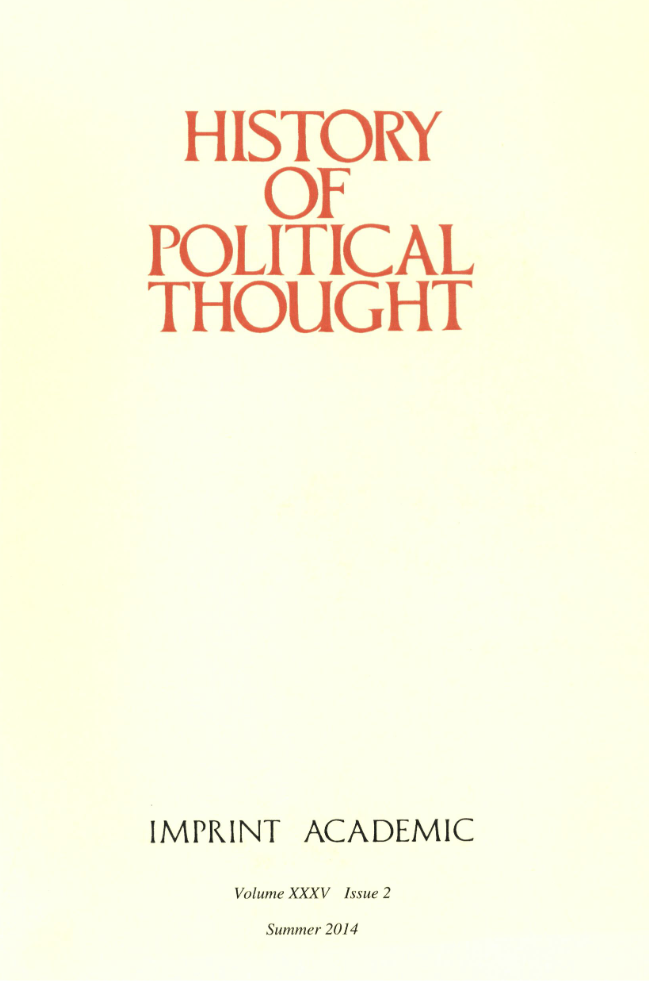
“Revisiting Burke’s Critique of Enthusiasm” History of Political Thought 35, no. 2 (2014): 317-344
Edmund Burke is often considered an arch-critic of enthusiasm in its various religious and secular forms. This article complicates this understanding by situating Burke’s writings against the backdrop of eighteenth-century treatments of enthusiasm as a disturbance of the imagination. The early Burke, this article shows, was actually sympathetic to attempts by the Third Earl of Shaftesbury and others to rehabilitate enthusiasm for politics and rescue it from popular derision. Next, the author reveals how Burke firmly resisted attempts to frame anti-Protestant violence in Ireland in terms of religious delusion or enthusiasm, and was alert to the political dangers posed by policies legitimated by that framing. Finally, the article calls into question the close association often posited between the enthusiasm Burke saw in the French Revolution and earlier religious enthusiasms of the seventeenth century.